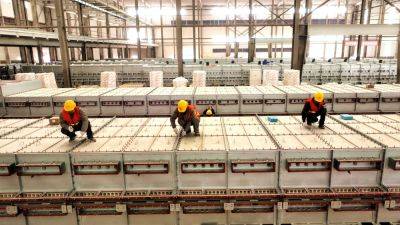Norway defends deep-sea mining, says it may help to break China and Russia's rare earths stronghold
Norway says its controversial decision to approve deep-sea mining is a necessary step into the unknown that could help to break China and Russia's rare earths dominance.
In a vote earlier this month that attracted cross-party support, Norway's parliament voted 80-20 to approve a government proposal to open a vast ocean area for commercial-scale deep-sea mining.
It makes the northern European country the first in the world to move forward with the process of extracting minerals from the seabed.
Norway's government said the practice could be one way to help facilitate the global transition away from fossil fuels, adding that every country should be exploring ways to sustainably collect metals and minerals at their disposal.
Scientists, however, have warned that the full environmental impacts of deep-sea mining are hard to predict, while environmental campaign groups have slammed the approval of what they call an "extremely destructive" process that sends a "terrible signal" to the rest of the world.
Essential metals such as cobalt, nickel, copper and manganese can be found in potato-sized nodules on the seafloor. The end-uses of these metals — along with other strategic minerals and rare earth elements — are wide-ranging and include electric vehicle batteries, wind turbines and solar panels.
As a result, demand is growing fast. The IEA expects this trend to continue as the clean energy transition gains pace, noting that demand for cobalt and nickel jumped 70% and 40%, respectively, between 2017 and 2022.
"Today, we are almost dependent on Russia and China and we have to diversify the global supply chain production of minerals around the world," Norwegian Energy Minister Terje Aasland told CNBC via videoconference.
"We have been







